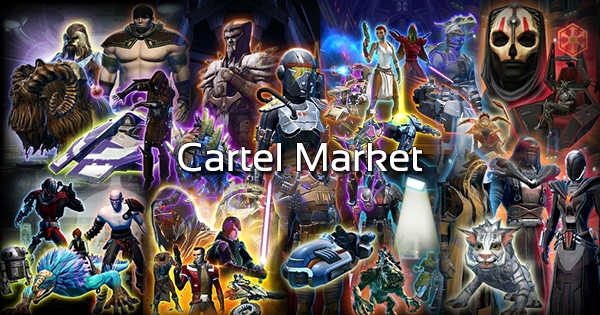The online gambling industry has always been at the forefront of technological innovation. From the very first online casinos in the mid-1990s to the mobile gaming boom of the late 2000s, internet casinos have continually adopted the latest advancements in digital technology to improve the player experience at 777 Casino Schweiz. In recent years, cryptocurrency and blockchain have become the latest disruptive forces that are radically transforming the world of remote gambling.
What is Cryptocurrency Gambling?
Cryptocurrency gambling refers to the practice of wagering cryptocurrencies such as Bitcoin, Ethereum or Litecoin on the outcome of casino games like slots, poker, blackjack and others. Instead of depositing traditional fiat money like dollars or euros, players fund their online casino accounts with digital coins and withdraw their winnings back to their crypto wallets.
The first Bitcoin casinos emerged shortly after the premiere of the world’s first cryptocurrency in 2009. In the past decade, literally hundreds of crypto gambling sites have popped up to meet surging player demand. The crypto gambling industry is currently valued at over $2 billion in 2023 and is expected to grow at double-digit rates in the coming years according to market researcher Bizrat.
Key Benefits for Gamblers
One of the main reasons why digital currencies have become so popular for online gambling transactions is because they offer unique advantages over traditional payment methods for players:
- Anonymity – By using crypto wallets and transactions, players can keep their identity private for gambling activities. This is useful for those playing in restrictive jurisdictions.
- Fast Processing Speed – Cryptocurrency deposits and withdrawals are typically completed within minutes, while credit card or e-wallet payments can take days. This enables quick access to funds.
- Low Fees – Transaction fees for sending crypto payments are negligible compared to the high fees charged by banks and financial middlemen for wire transfers or credit card funding.
- Provably Fair – Blockchain casinos allow players to independently verify game fairness through open-source algorithms. This eliminates the need to blindly trust the operator.
The Provably Fair Revolution
One of the most important innovations that crypto gambling has unlocked for players is the concept of provably fair casino games. Provably fair gaming uses cryptographic techniques to prove that game outcomes are truly random and not manipulated in the operator’s favor.
Here’s how it works:
- The player requests a seed number before starting a game
- The casino creates an initial seed and hash value visible to the player
- Random number generation software combines the seed with a secret value
- The result determines the game outcome on the blockchain
- Players can verify the secret value matches the published hash
By using blockchain technology, results can be proven fair without revealing the proprietary RNG algorithm. Several reputable crypto casinos like FortuneJack and Bitstarz offer provably fair versions of all their games. This feature is loved by players since it eliminates the possibility of cheating by the house.
The Rise of Decentralized Casinos
Decentralized apps (dApps) represent the next stage in the evolution of crypto gambling. Instead of relying on a centralized operator to run the casino platform, dApp casinos have their core functions distributed across blockchain peer-to-peer networks.
Key advantages of decentralized casinos:
- Completely anonymous – no need to disclose personal information during registration
- Self-enforcing smart contracts – funds in escrow protected through code
- No risk of government interference – distributed architecture cannot be taken down
- Community governed – platform decisions and rules voted on by token holders
While the user experience and game variety do not yet match traditional online casinos, decentralized casinos offer unparalleled transparency benefits. Leading projects in this niche include Ethereum-based Virtue Poker for crypto poker and TRONbet for on-chain dice.
The Top Cryptocurrencies for Gambling
Bitcoin undoubtedly reigns supreme as the most widely supported digital currency at online gambling sites due to its mainstream popularity. However, other alternative cryptocurrencies like Ethereum, Litecoin, Bitcoin Cash and Ripple are quickly being added by internet casinos to enable cheaper and faster payments.
Most Popular Cryptos for Gambling
| Currency | Deposits | Withdrawals | Speed |
| Bitcoin | 95% | 90% | Slow |
| Ethereum | 80% | 75% | Fast |
| Litecoin | 65% | 60% | Very Fast |
| Bitcoin Cash | 55% | 50% | Fast |
| Ripple | 35% | 30% | Very Fast |
In addition to speed and network transaction fees, some currencies like Ripple and TRON offer negligible costs for sending payments. Gambling sites are happy to absorb minuscule crypto transfer fees to attract usage of newer coins.
The Outlook for Crypto Gambling
While fiat currencies will likely continue to dominate the internet gambling sector in the near term due to their mainstream familiarity and adoption, the trajectory for cryptocurrency is clearly on the rise. As blockchain technology improves and more users enter the crypto ecosystem, digital currencies will cement their place as a viable payment method at online casinos.
The expanding range of provably fair games also unlocks new opportunities for players to engage in transparent and trustworthy online gambling. Meanwhile, the launch of decentralized casino applications based on smart contract blockchains heralds a future wave of disruption for the industry reliant on middlemen.
For these reasons, the synergy between cryptocurrency and internet gambling appears to be a match made in heaven. The wild west environment of crypto casinos offers exactly the type of digital lawlessness, decentralization and anonymity that many players desire. As the technology matures, crypto gambling promises to emerge from its niche status to definitively change the face of remote gaming for players and operators alike in the coming decade.



